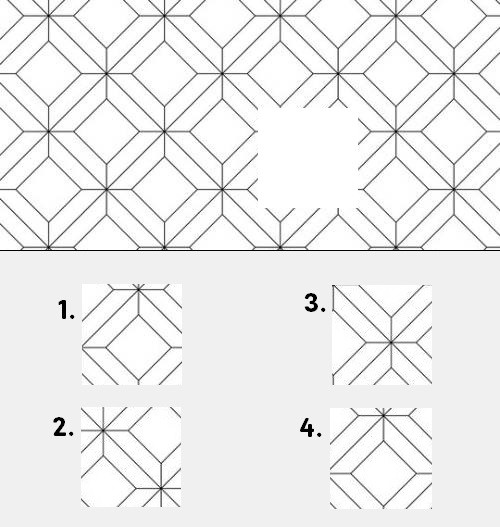
If you’re planning to join the Pakistan Navy, the very first challenge you’ll face is the Initial IQ Test. Many candidates underestimate it, but this test decides whether you’ll move forward in the recruitment process or not.
This guide explains the test pattern, timing, verbal and non-verbal examples, and gives you access to 500+ practice questions so you can prepare confidently. Whether you’re applying for PN Cadet, Sailor, or Civilian posts — this IQ test is your gateway to the next stage.
What Is the Pakistan Navy Initial IQ Test?
The IQ test is designed to measure your logical thinking, mental sharpness, and problem-solving ability. It’s part of the initial computer-based screening, and if you fail this stage, you won’t be allowed to continue further.
So yes, this test really matters.
Test Pattern and Time Limit
| Section | No. of Questions | Type | Time |
|---|---|---|---|
| Verbal IQ | 25 | Language & logic-based | |
| Non-Verbal IQ | 75 | Pattern & image-based | |
| Total | 100 Questions | – | 40 Minutes |
The test consists of 100 questions that you must complete in just 40 minutes. That gives you about 24 seconds per question, so time management is key. Here’s how the test is divided:
- 25 Verbal Questions: These focus on language skills, comprehension, and logical reasoning using words.
- 75 Non-Verbal Questions: These include puzzles, patterns, shapes, and logical reasoning that test your ability to analyze and interpret visual information.
To pass, you need to score at least 50%, meaning 50 or more correct answers.

Verbal IQ Questions
So, the verbal part of the IQ test is designed in order to assess your vocabulary, grammar, and logical reasoning. Some examples have been given as follows to get a general idea:
Word Relationships and Analogies:
These questions test a candidate’s understanding of relationships between words.
Example: “Tight is to Loose as Hard is to ______.” (Answer: Soft).
Sequence Problems:
Candidates are asked to identify patterns or sequences, such as number series or alphabetical arrangements.
Example: “2, 5, 9, ?, 20, 27” (Answer: 14).
Odd One Out:
Here, candidates identify which item does not belong to a group based on a logical relationship.
Example: “Sheep, Cow, Goat, Horse” (Answer: Horse, as it is not primarily a livestock animal for milk).
Synonyms and Antonyms:
These test vocabulary and understanding of word meanings.
Critical Reasoning:
Questions that require logical deductions, such as “Disease is to Health as Falsehood is to ______.” (Answer: Truth).
Non-Verbal IQ Questions
Non-verbal questions involve shapes, sequences, and patterns. They demand strong observational skills. A few examples for you are as follows:
Pattern Completion:
Candidates identify the missing part of a given pattern from multiple options. Example: Completing a series of geometric shapes.

Sequence Detection:
Involves recognizing the progression of shapes, sizes, or designs. Example: “Which shape comes next in the series?”
Odd One Out:
Candidates must find the shape or figure that differs from the rest based on specific attributes like size, orientation, or structure.
Figure Matching:
Matching identical figures from a set of visually similar images.
Pro Tip: Practice daily with image-based IQ questions. Once your brain gets used to the logic, you’ll start solving them in seconds.
Tips for the Test Day
Here are a few small but powerful habits that can make a big difference:
Attempt All Questions
There’s no negative marking, so never leave a question blank.
Stay Calm and Confident
Confidence improves clarity. Nervousness only wastes time.
Read Every Question Carefully
Many students lose marks due to misreading. A single word can change the meaning.
Keep Track of Time
Don’t get stuck on one question — if you’re unsure, move on and come back later.
Avoid Overthinking
The questions are designed to be solved quickly. Trust your first instinct.
How to Prepare Effectively
Good preparation doesn’t just mean solving random IQ questions — it’s about building consistency.
Here’s a short plan that works:
- Start with Verbal Practice: Focus on analogies, synonyms, antonyms, and number series.
- Add Non-Verbal Practice: Use apps or websites that include shape and pattern puzzles.
- Time Yourself: Try to solve 100 questions within 40 minutes regularly.
- Take Mock Tests: Practice under real exam conditions to build stamina and focus.
We’ve created 10 full-length Navy IQ mock tests for your practice.